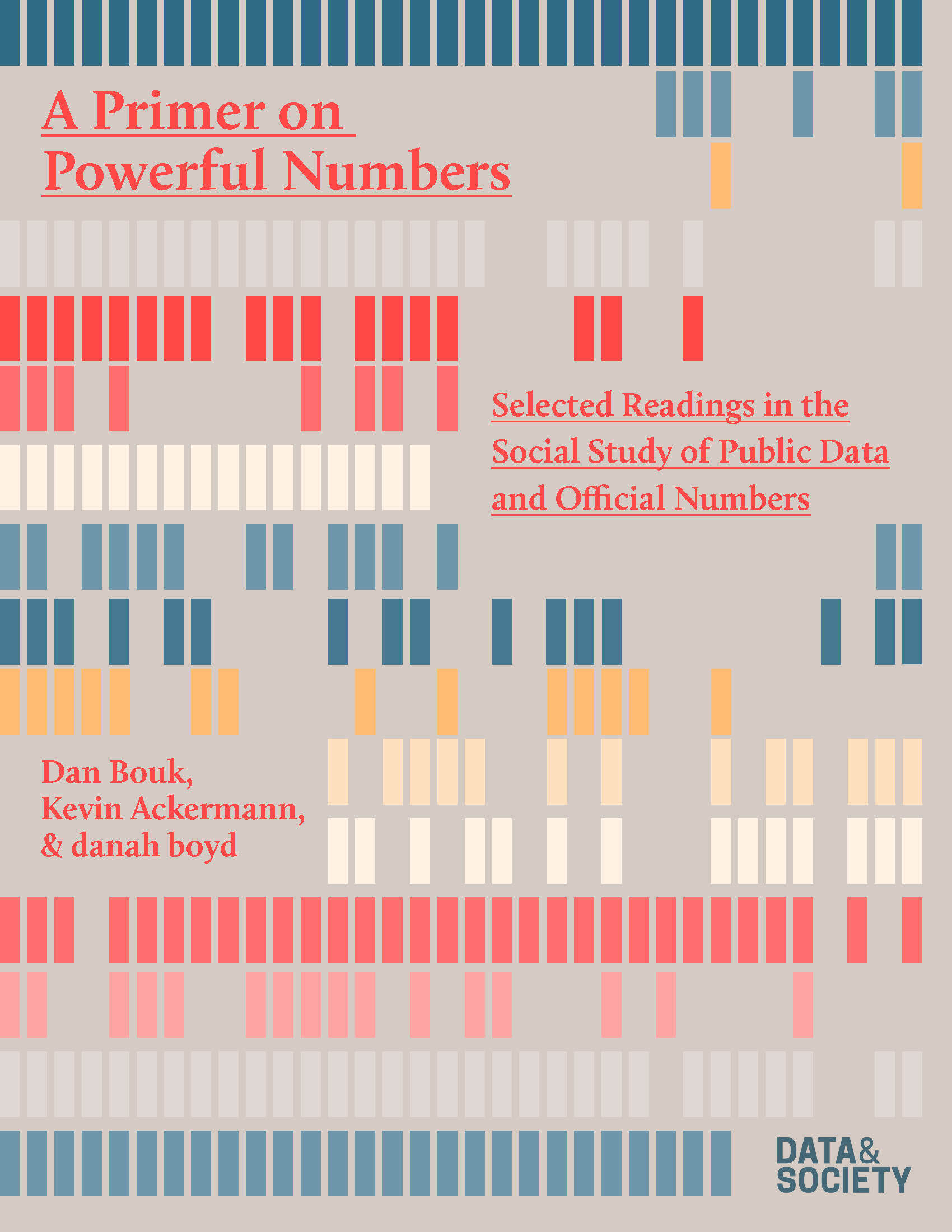Scholars Dan Bouk, Kevin Ackermann, and danah boyd join forces on a thought-provoking resource that begins to explore the power of official numbers and public data. In A Primer on Powerful Numbers: Selected Readings in the Social Study of Public Data and Official Numbers, the authors touch on the power and authority that public numbers have in societies.
Written with the end user in mind, this publication is intended to be a non-exhaustive syllabus organized around a series of teachable or debatable claims concerning the influence institutions of authority have on how data and numbers are created, as well as how that information is used by the datafied state to make fundamental decisions about democratic policy and process.
Official numbers are the foundation upon which modern societies trust data. An official number is different from any other number because it’s given with authority and always there for the taking. Official data sets come out of bureaucratic and corporate offices and are imbued with the authority of those in power.
Provided in an easy-to-digest format, this primer is organized around six key arguments that center on the authority of data:
- Modern societies are built to trust in official numbers (they even let official numbers make key decisions);
- Official numbers are made, not found;
- We forget that official numbers have to be made even when things are going well;
- Institutions make public data and they make data public;
- Official numbers are political; and
- Consensus on official numbers requires work.
The compilation of readings in this acute collection by Bouk, Ackermann, and boyd encourages deep exploration into this topic by introducing readers to 103 seminal works by a wide range of scholars, including but not limited to Ruha Benjamin, Madeleine Claire Elish, Khalil Gibran Muhammad, Ranjit Singh, Kadijah Ferryman, Jacqueline Wernimont, and Kate Brown.
For more information on official numbers in practice, read the House Arrest report by Dan Bouk on how an automated algorithm constrained Congress for a century. And for more information on the challenge of producing detailed, useful, and confidential public data in the 2020 census, read the Differential Privacy report by danah boyd.


